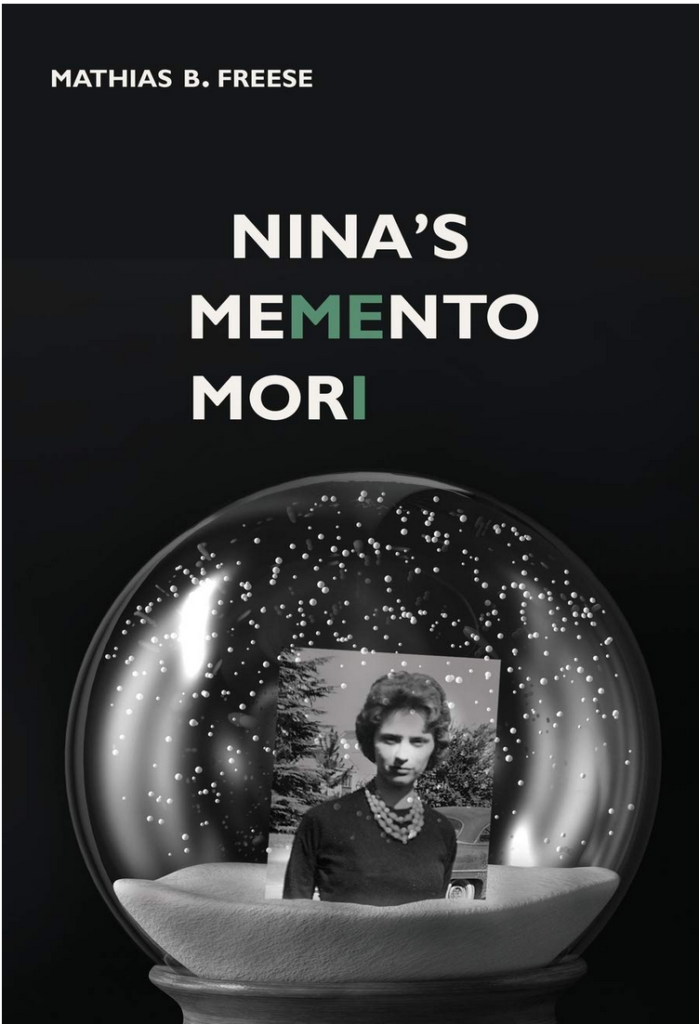
Near the end of Nabokov’s Lolita, Humbert makes an honest admission: “[A]nd it struck me…that I simply did not know a thing about my darling’s mind.” That line sums up the isolate game of memorializing a deceased loved one, which is the basic tension in Nina’s Memento Mori, an elegy to Mathias Freese’s lost wife.
The profound responsibility of answering the question “Who was Nina?” is left to the lone memoirist: I can say or write anything I want about her…There is much writerly power in that. I am the executor of her probate in all things now. She is mine now in ways she could not be when alive. I am the steward of her memory.
Freese ends up analyzing himself, putting the “me” in “memento” and the “i” in “mori,” thanks to ever-giving Nina posthumously providing a therapeutic mirror or “Rosebud,” which Freese appropriates from Citizen Kane. But Freese mourns more over the burden of existence than over its loss. Appropriately, for Kane is not about the symbolic sled as much as it’s about the cumulative snow that buries it.
Reviews
“A soul-bearing, heartbreakingly beautiful memoir that strips away the frivolities of life; it speaks of loss and the profound depths of sorrow experienced after the death of a loved one. I was incredibly moved and brought to tears more than once.”
– Bobbie Crawford, Book Publicist at Nurture Your BOOKS
“I love reading works by Mathias Freese. I just finished Nina’s Memento Mori and wow…what a great read! I highly recommend it. The writing is so raw and pure and allowed me to visualize everything so clearly. I can’t label it anything other than a literary beauty. I love writings that play on my emotions as I read them, and this one delivered. Mr. Freese is definitely a ” tell it like it is” author and I completely love that about him! He doesn’t hold anything back while sharing his personal life with his readers.”
– Amazon reader
“Once again Mathias beautifully illustrates the literary genius that he is while also delving into one of the most difficult concepts of life as a whole, and that is the loss of a loved one. The author has crafted a beautiful, tragic and heartfelt dedication to his late wife, not only showcasing her own life but viewing himself through her eyes.”
– Anthony Avina